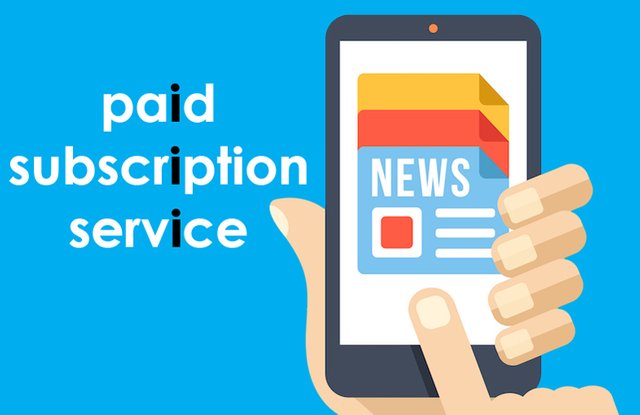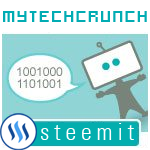
It has been said for quite a long time, the various information on the Internet became available for free, and news organizations such as newspapers are in danger of management. According to the Pew Research Center, in only one year in 2015, US newspaper circulation has 7% and advertising revenue is down by 8%.
A new source of income grows as it is, now you can read the news of various newspapers online, there are advertisements and there are paid subscription services. However, it is also pointed out that the advertisement mode that became a hotbed of fake news because it is easy to fall into sensationalism because the advertisement model.
So, in order to economically support high-quality news and speech that properly convey the facts, there is a way of thinking that paid subscription service is one solution. Medium, seeking a new form of publishing platform, also announces that it will launch a paid subscription service. Speaking of paid subscription, on the user's side, that screen is "Please pay every month in order to read from here." For example, the New York Times is $ 3.75 a week. It will be a shame if you do so, "No, I just want to read this article for the time being.
But, editor at Qz Frédéric Filloux has an interesting suggestion. That is, " Why do not you try changing the price like a ticket for a paid subscription to news? " And to realize such a dynamic pricing system on Facebook and Google.
Fee paid for subscription change dynamically
Even airline tickets are next to each other on the same aircraft, the price is very different depending on the route and timing you reserved. Filloux wrote something like this specifically to apply it to paid subscriptions of news.
If Google diverts Google Play's infrastructure already selling paid subscriptions to news products, it should be easy to make it just like iTunes. Google not only sells it in the store but also offers "offers" directly through articles on Google News or Google search. "Offer" is a proposal dynamically targeted using Google's data held by each user.
As an example, Mr. Filloux makes a price offer to users in wealthy areas such as San Francisco and presents a 70% discount to users in areas with lower incomes .
On the other hand, we say that there are three hurdles for realizing on Facebook. One thing is that all information on Facebook is basically free, so it is necessary to correspond to paid subscription. Secondly, because Facebook determines the order in which feeds are displayed based on its own algorithm, it is necessary to adjust it for paid news or to provide another feed for news. Thirdly, this is also common to Google but is whether privacy is good for reflecting the enormous personal information that Facebook has in its pricing of paid subscriptions .
Just on either service, the news is the main content originally. In terms of image, next to the existing news is displayed is displayed next to it, and when you click it, using the settlement information saved on Google or Facebook I think that it seems like money is automatically withdrawn.
Do paid subscriptions save news?
Just to begin with, if Facebook and Google sell paid subscriptions on their services, there's just some motivation that is not just the ideal of "to save good sources of information". But Filloux assumes a mechanism to pay a fee when a pay subscription agreement is established on Facebook and Google. Since both companies now are mostly advertisements, it seems like they can incorporate it as a new income source with high affinity.
Also, both Google and Facebook are strongly required to take measures against fake news. If the paid subscription model expands, fake news will not disappear, but it will be easier to separate sources of information that you would like to read even if you pay money.
If this system could be more flexible, for example, "I'd like to browse the New York Times and Wall Street Journal for deadlines report, so I want it to be cheaper" "Paid subscription media it might be able to respond to the detailed needs like "I want to pick up and read only one article a day from the whole". If so, the base of paid subscribers will spread further and I do not mind paying thousands of dollar every month, but sometimes it is good to pay hundreds of $$ sometimes that people will support a variety of news published.
But how many people subscribe for paid only to watch the news on the web or in the app? In fact, for example, in the New York Times (PDF), among the total 3 million paid subscribers of paper and digital subscribers, there seem to be 1.85 million digital subscribers as of the end of 2016. Incidentally, the flexibility of their pricing is "free 10 articles per month", "2 digital versions & set with the paper version, the total of 3 types of contract types" "contract half year half price" "can be given to friends". But more dynamic, if you want to read when you want to read is a bargain. If you can realize a mechanism like that, you mean that more people will make money.
Both Facebook and Google have built relationships with the news media so far. For the future, this Filloux's suggestion is worth considering, but If the system dynamically changes prices like air tickets, do you use more?
